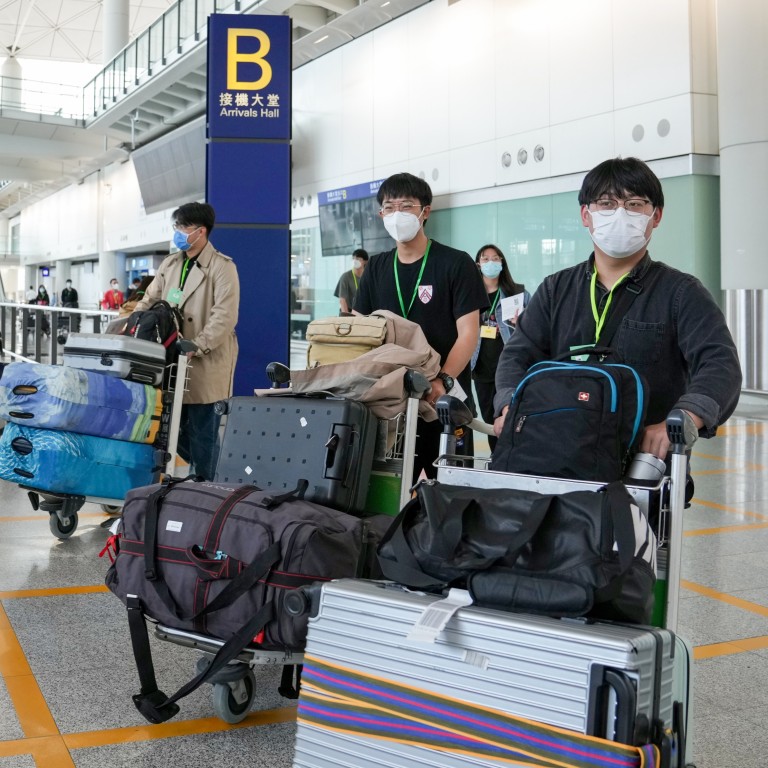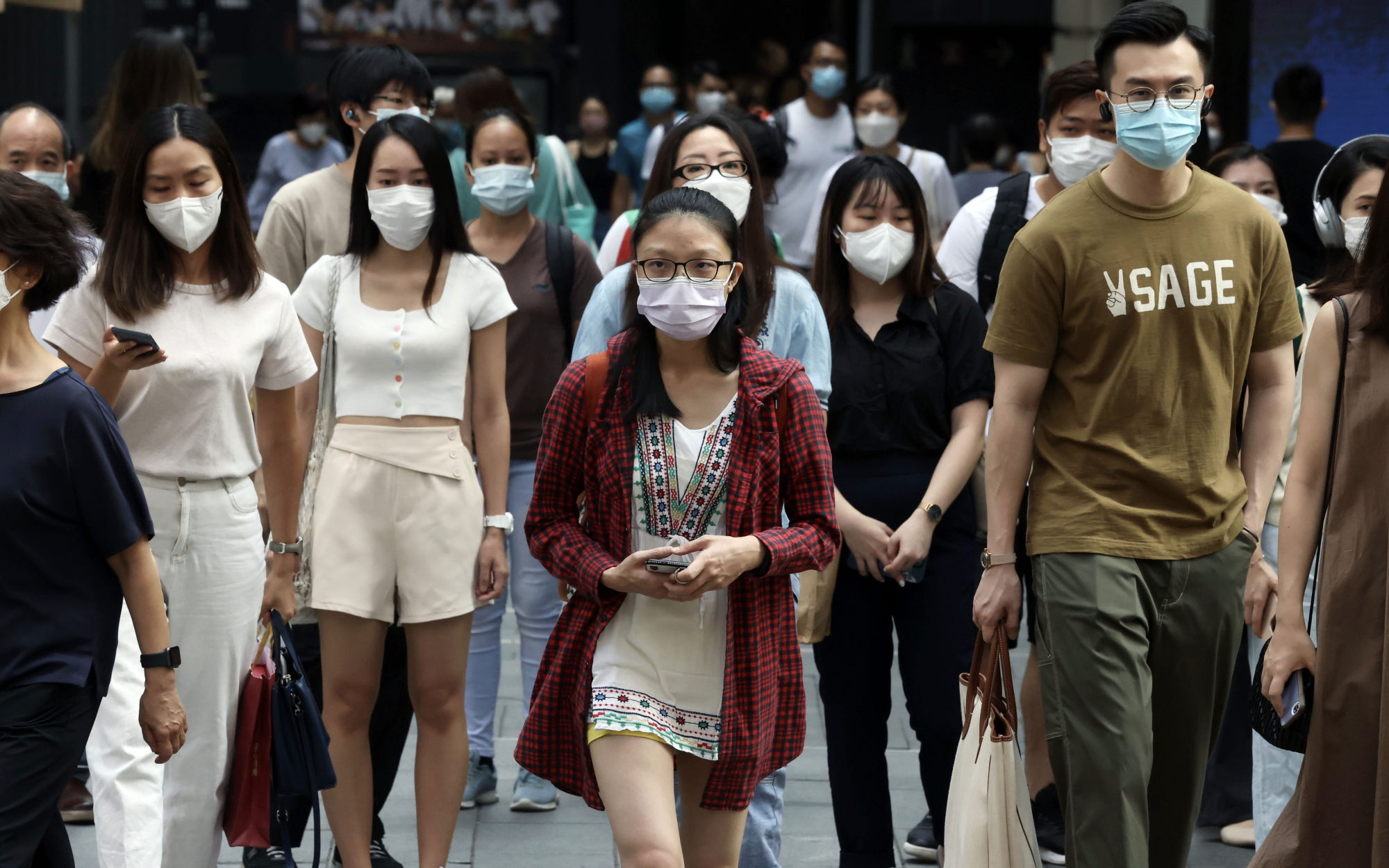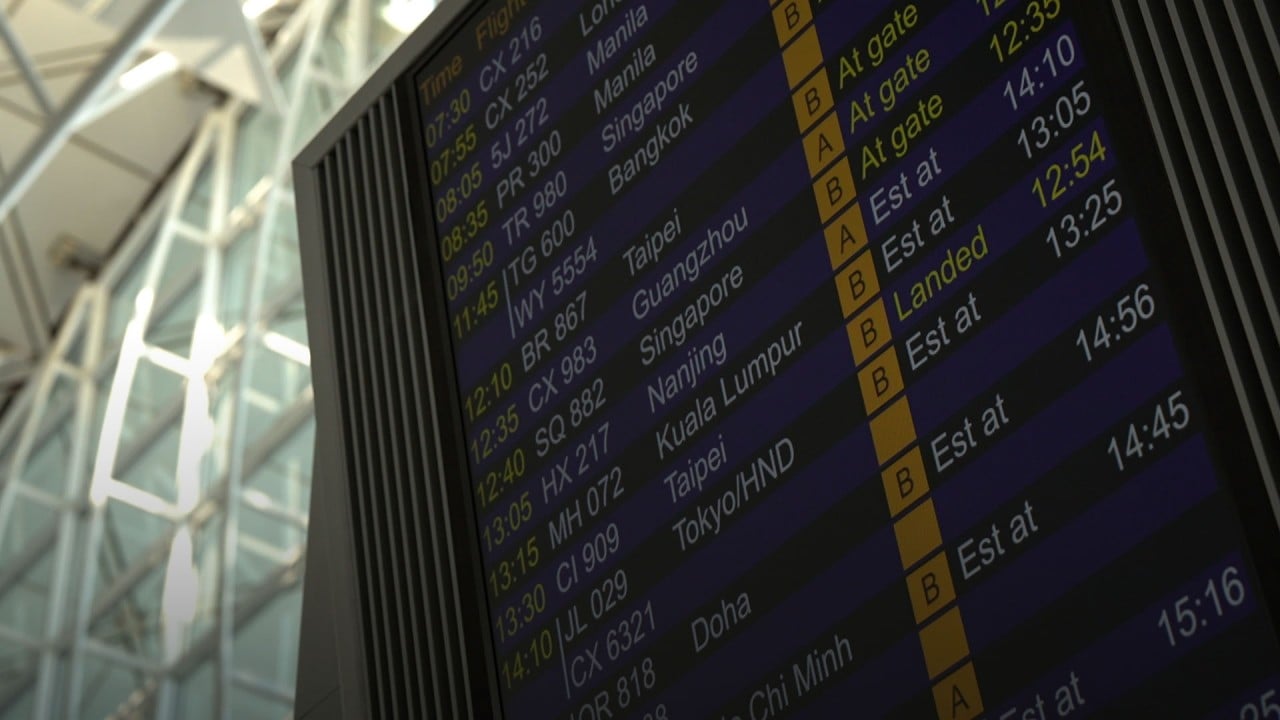
Coronavirus: rule breaches, infection rebound could derail Hong Kong’s plan to further ease travel curbs, city leader warns
- John Lee reveals more than 40 people breached health code since August, while 8 to 9 per cent of residents subject to compulsory testing did not comply in past two months
- He urges business sectors to be patient in reaping economic benefits of eased curbs, with city on second day of ‘0+3’ scheme
Hong Kong’s plans to further ease coronavirus travel curbs could be derailed if there is widespread breaching of regulations and a resurgence in infections, the city’s leader has warned amid mounting calls to end all restrictions to revive the economy.
Chief Executive John Lee Ka-chiu struck a cautionary note on Tuesday and urged local businesses to be patient in reaping economic benefits as it was only the second day under a new arrangement that no longer required overseas arrivals to serve hotel quarantine.
“If everyone complies with our rules, our path [to normality] will be smoother. But if many keep breaching the rules, it may not be easy for us to have new considerations on [the relaxation] of measures,” he told the press before his weekly Executive Council meeting.

Coronavirus infection numbers continued to fall on Tuesday, with 3,667 new cases reported, as well as six more related deaths. Imported infections rose slightly to 193 from 188 on Monday. The city’s coronavirus tally now stands at 1,753,201, with 10,134 fatalities.
Apart from rulebreakers, Lee said, another factor that could derail the city’s plan to further open up was a possible double whammy of Covid-19 and seasonal flu in a coming winter surge.
Lee said daily Covid-19 caseloads which hovered at 4,000 were “still a high number”, while 20 per cent of public hospital services had been cut to spare capacity for patients. He also noted that vaccination rates for the elderly and children were unsatisfactory.
“If we can put the [possible] rebound under control, we hope to allow more room for activities [to resume] gradually according to the actual circumstances,” he said without elaborating how his administration defined a resurgence.
Under the new “0+3” policy – regarded as Hong Kong’s major step towards fully reopening to the world – incoming travellers only need to undergo three days of home medical surveillance, during which their movement citywide is limited. This is down from the previous “3+4” scheme in which arrivals serve three days of hotel quarantine and another four under medical surveillance.
During the three days of surveillance under “0+3”, travellers are issued an amber health code that prohibits them from entering venues such as bars and restaurants, or any other premises covered by the vaccine pass. Infected arrivals, as well as local Covid-19 patients, get a red code that bars them from entering high-risk premises citywide.
Lee said he noted the positive response in society to the eased travel rules, but singled out more than 40 people who had breached the red code since the system was implemented in August, and an 8 to 9 per cent non-compliance rate with compulsory testing orders in the past two months.
‘0+3’ switch is right move, but more needs to be done: Hong Kong business lobby
Seven doctors – six this month and one in March – and 22 patients have been arrested for allegedly issuing or requesting fake certificates.
A 65-year-old doctor was the latest to be detained on Tuesday on suspicion of making a false instrument. He was accused of producing 3,196 exemption documents in three months from February, charging HK$3,000 to HK$5,000 for each.
Hong Kong’s ‘0+3’ scheme is here, but travellers are not – at least not yet
After more than 2½ years under the pandemic, Hong Kong is joining other Asian regions in easing once stringent border restrictions on travellers.
From next month, Japan will lift its daily cap on arrivals, while Taiwan will drop quarantine requirements for international arrivals. Singapore since last month no longer requires the mandatory wearing of masks in indoor settings.

Government pandemic experts in Hong Kong have said conditions are ripe to lift more travel curbs and local social-distancing rules, provided there is no rebound in caseloads in the coming weeks.
Hong Kong can ease Covid social distancing now, adopt ‘0+0’ regime soon: experts
Representatives in the hospitality industry have expressed concerns that an outflow of residents under the “0+3” policy will greatly outnumber the inflow of tourists, resulting in mass lay-offs and closures.
Responding to the chorus of concerns, Lee on Tuesday sought to reassure businesses that it would take time for certain industries to benefit from an overall revival of economic activities.
“The new measure has been put in place for one day only. We believe that as many events will return to the city, [along with] conferences and business travellers, the economic benefits are expected to be enjoyed by different walks of life,” he said.
“We will closely monitor the figures, and do whatever we can [to ease curbs] steadily and surely,” the chief executive promised, adding his administration hoped to avoid confusion arising from any policy U-turn.
Joyful scenes at Hong Kong airport as city welcomes arrivals under ‘0+3’ scheme
To retain the city’s competitiveness and revive the Covid-battered economy, business representatives said all restrictions needed to be removed and its border with mainland China, which have been partially shut since March 2020, should be fully opened as soon as possible.
But a day after the “0+3” policy was announced last Friday, top officials in neighbouring Shenzhen, convened an anti-pandemic meeting to step up measures and strengthen cooperation with Hong Kong to “prevent imported cases”.
The meeting, hosted by Shenzhen party secretary Meng Fanli and municipal officials, highlighted the urgency to strictly enforce rules on masking, testing, border and premise regulations, according to People’s Daily on Sunday.
Asked on Tuesday if this would affect Hong Kong’s plan to roll out a “reverse quarantine” scheme for residents to cross the border, Lee said high-level discussions had been “progressing”.
He added that his government would work towards providing isolation facilities in the city with standards acceptable to mainland counterparts. Lee also said he still held “positive hope” in the plan and believed it would not heighten infection risks for Shenzhen.



